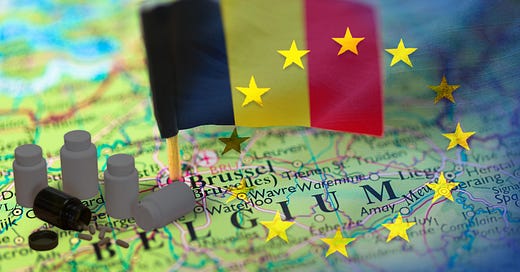Proposed Belgian supplement law likely illegal
ANH tells the European Commission in its consultation response that a proposed Belgian amendment to its food supplement law would violate EU law.
Last week, the Alliance for Natural Health (ANH) Europe responded to a consultation by the European Commission and informed the European institution that a proposed Belgian law on food supplements would likely violate EU law if it was implemented.
This is because it would impose an unnecessary barrier to trade within the single EU market and breach the principle of EU member state mutual recognition that allows products legally marketed in one member state to be marketed in another, assuming no overt safety concerns.
The proposed amendment to two Belgian 2021 Royal Decrees relating to the manufacture, marketing and sale of food supplements effectively attempts to change the existing pre-market notification system to an onerous authorisation system, a requirement that goes beyond the scope of the guiding framework EU directive on food supplements.
I expressed my thoughts on the proposed amendments: “We think the proposed Belgian amendment is part of a concerted effort by some European member states and the European Commission to tie the regulatory noose ever more tightly around food supplements, in an effort to treat them more like drugs which would make it ever harder for smaller companies to bring them to market.”
ANH Europe’s in-house lawyer and administrator, Marga Verspagen, said, “Our analysis shows that the amendment, if passed in law, would have a devastating effect on many smaller Belgian and Dutch food supplement businesses,”. She continued, “Not only that, we also believe it would likely be a violation both of the Lisbon Treaty on the Functioning of the EU—the TFEU—and the regulation on mutual recognition, Regulation 2019/515.”
Marga Verspagen, in-house lawyer for ANH Europe (left) and Rob Verkerk PhD, ANH executive & scientific director (right)
If the Draft amendment is adopted, the Belgian authorities will be able to prevent companies placing food supplement products on the market. This refusal would interfere with article 10 of the European Directive 2002/46/EC which only allows for a notification system. Notification specifically does not involve assessment of a detailed dossier as it is not a product authorisation or registration process. Supplements that meet the European definition, being “concentrated sources of nutrients”, can certainly be regulated after being placed on the market, and can be the object of different measures if the competent bodies find infractions to relevant national or EU legislation. However, authorities cannot prevent products selling legally in other member states prior to their placement on the Belgian market.
The draft amendment will make it very easy for Belgium to refuse notifications and fail to grant notification numbers based on inadequate data, reinforcing a longstanding practice of the Belgian authorities that has recently been condemned by the Belgian Council of State.
The Belgian amendment also attempts to broaden the definition of a food supplement by removing the term ‘concentrated’ from the definition. This could have the effect of causing products that were previously regarded as foods to be forced into the food supplement category, and then be unable to be sold because of the difficult hurdle involved with receiving a notification number.
The ANH has requested that the European Commission issues an opinion on the nature and impact of the proposed Belgian law, while highlighting the particularly problematic clauses.
ANH is concerned that this proposal is part of a wider plan by some member states and the European Commission to set up a mandatory notification procedure for all European countries as recommended by the European Economic and Social Committee in its report: ‘How to implement harmonisation of market entry for food supplements in the EU: Solutions and best practice.’
We will share news of the European Commission's response to the submission (and that of others). We will then be able to decide next steps, legal action being one option.
Download ANH’s consultation response here.
Follow the ANH’s work to protect access to natural health options, including food supplements, both in Europe, the USA and beyond.






Researching white teas this monring and noting advice on the site - the usual cover my .... standard jargon with any health peroduct reference is made in this case that "its crucial to consult a Doctor" before drinking tea. Given the poor training Drs are given in many areas for the last 100 years, and especially Nutrition, one almost reads that as an impramatur of a product as one does when seeing the usual FDA nomenclature regarding Supplements and like.
Agreed that this is a tightening of the CONTROL noose and it is CRUCIAL to nip this in its bud. Especially with these RUles that are dreamt up by person who ab-use Law when it suits them and totally disregard the Law in the same vein.
So positrive to read of the Lawyer /CEO of ANH Europe - a necessity to be qualified in Law with all that is seeping out and certainly going to increase++.
You are consolidating good teams - sincere appreciation to you Rob. (& teams of course) You myust ALL be burning the midnight oil.
Gumnut123 AKA Deirdre